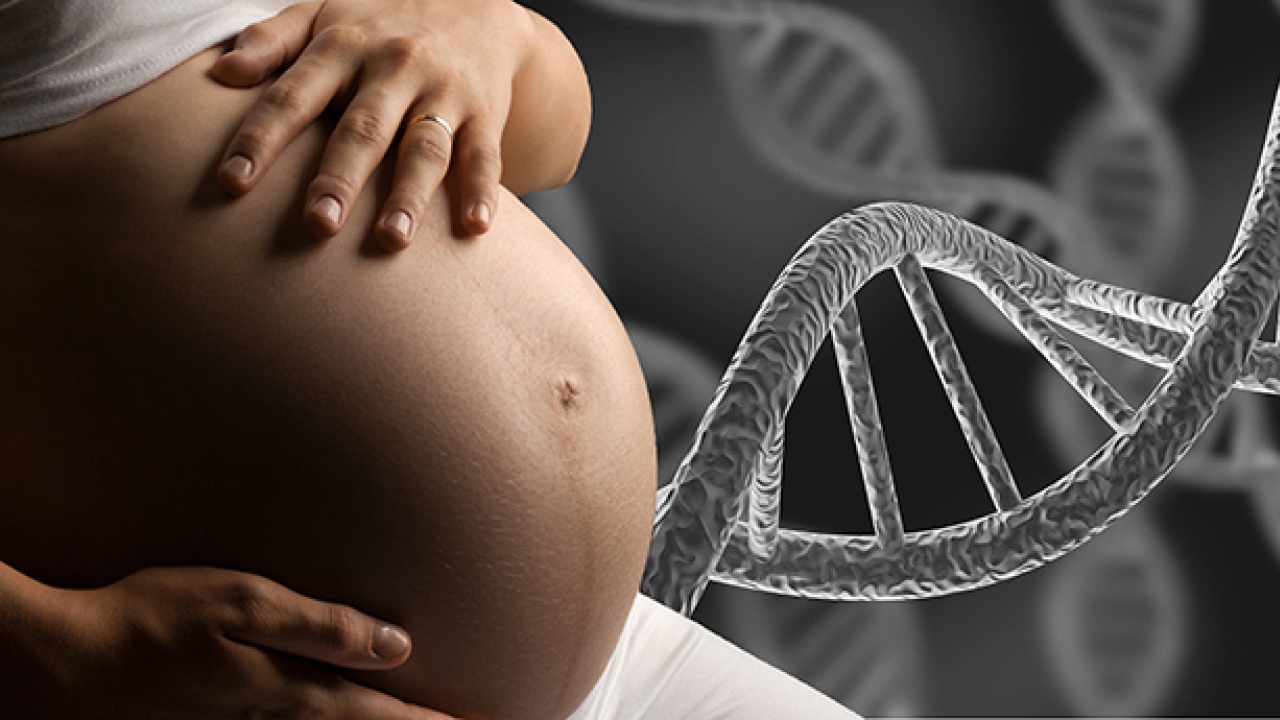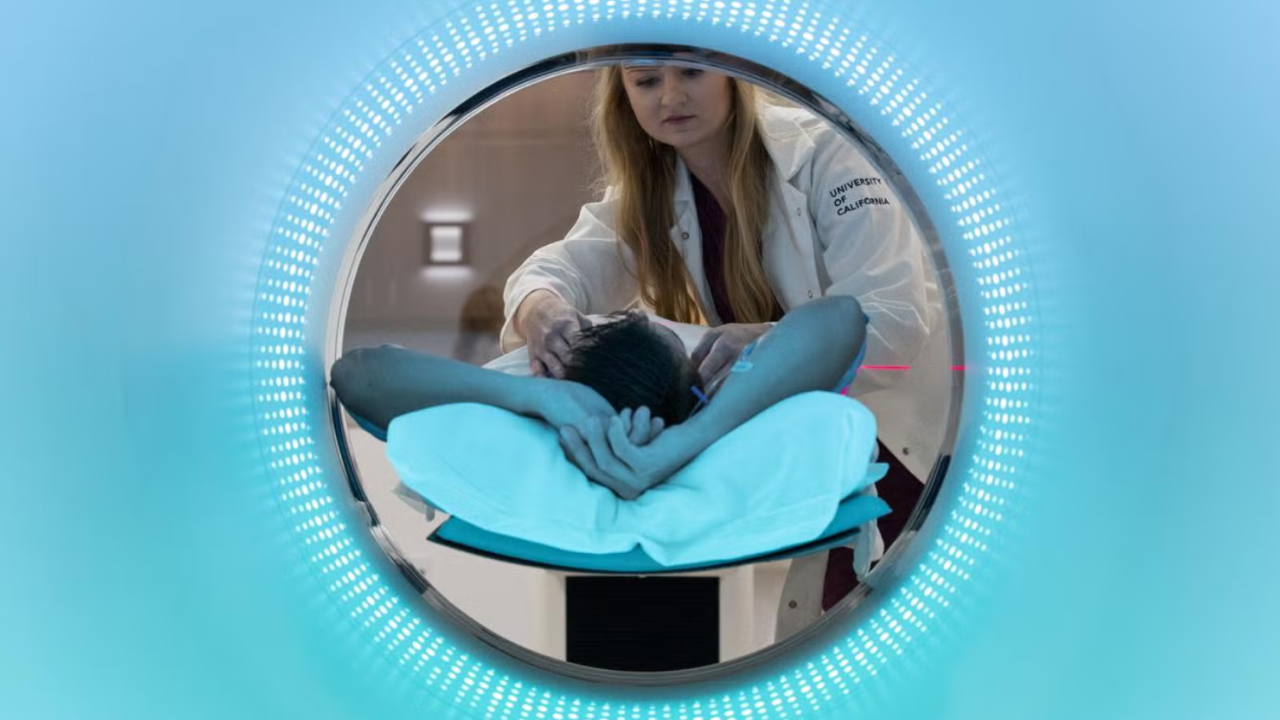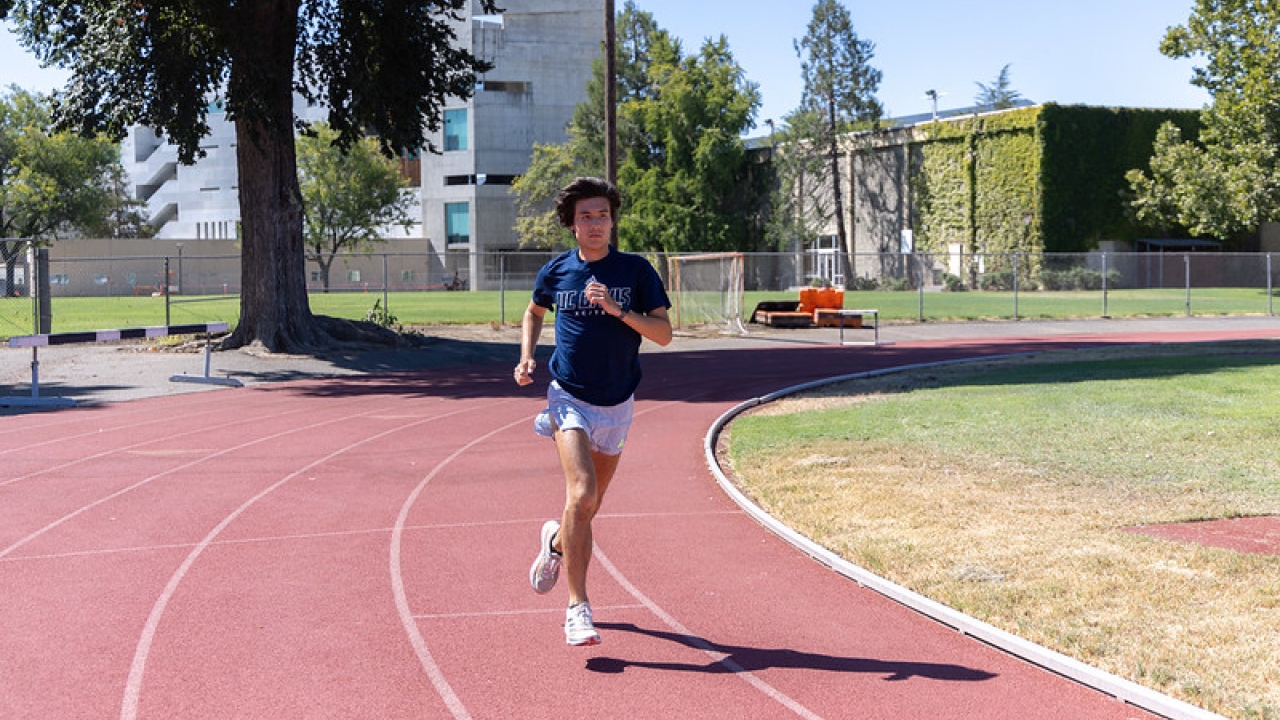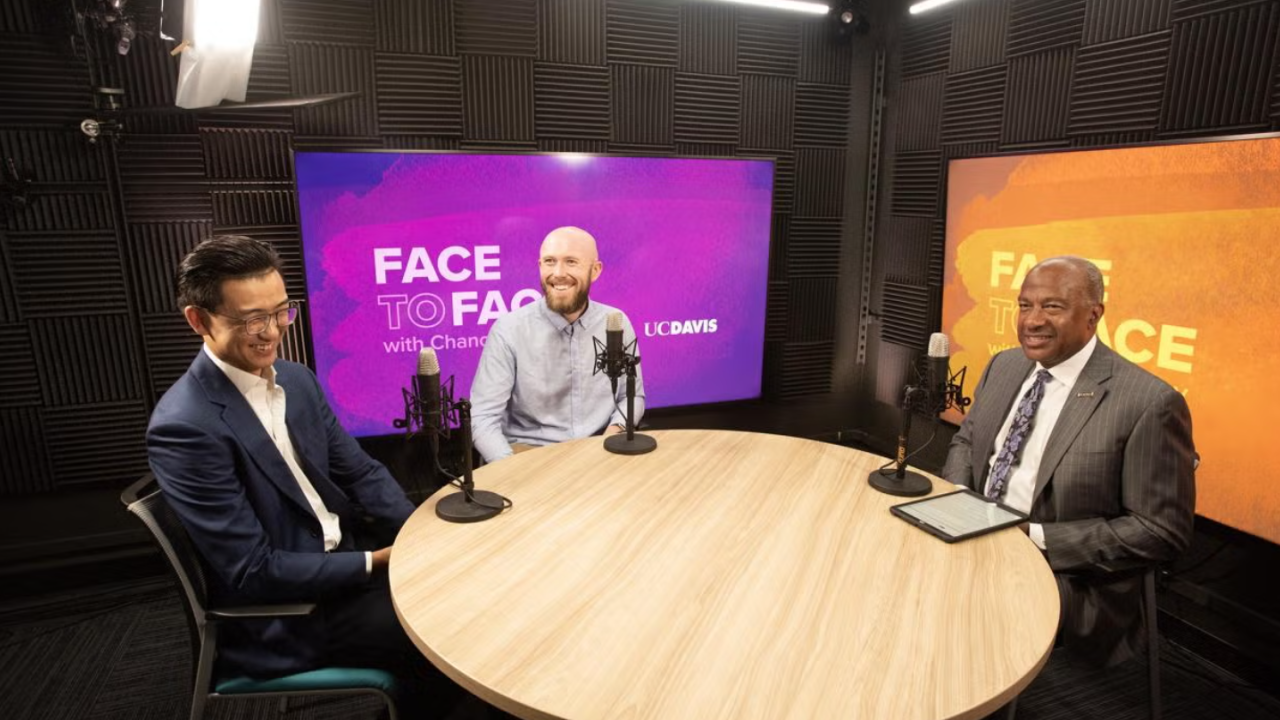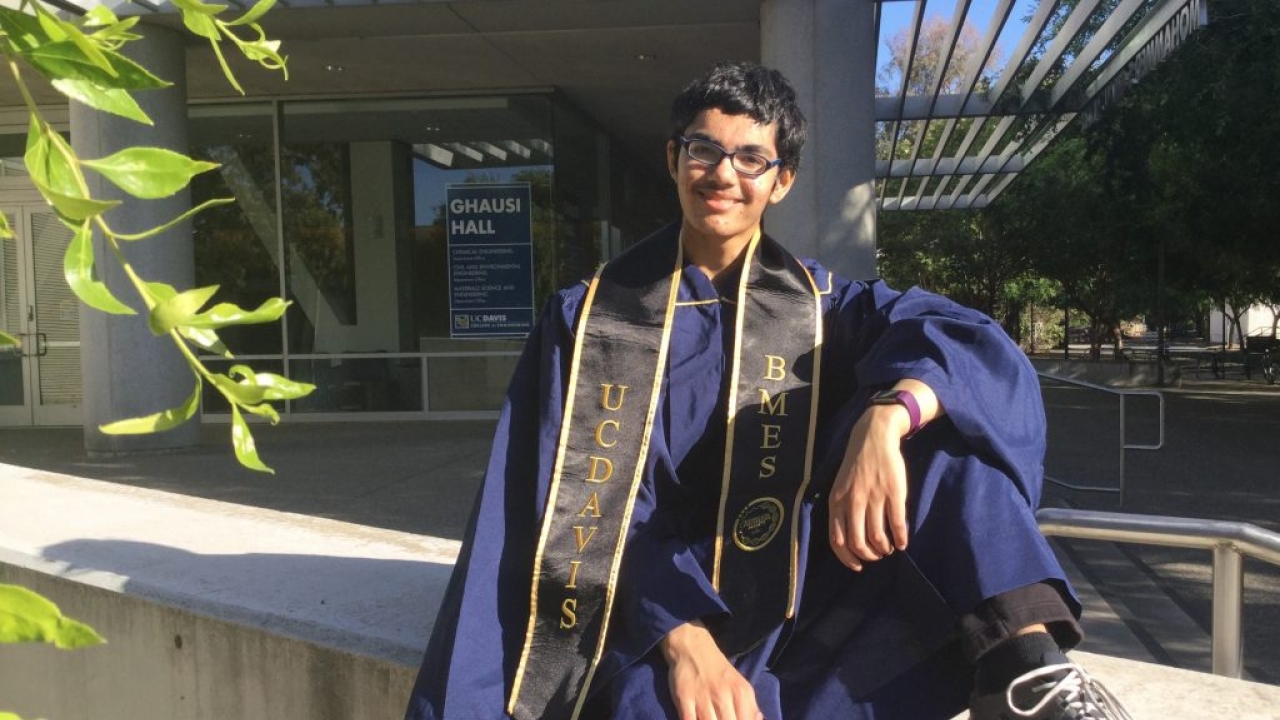
Teenage Engineer: Tanishq Abraham, ’18
Earlier this month, 15-year old Tanishq Abraham received a bachelor’s degree with honors in biomedical engineering at UC Davis. As an undergraduate, Tanishq has been active in research on smart biovesicles for drug delivery, which resulted in a first-author publication. He was also initiated into two of the oldest honor societies in the nation, Phi Kappa Phi and Phi Beta Kappa. This motivated young man is continuing his education in the College of Engineering later this year when he begins his doctoral studies in biomedical engineering as a Dean’s Distinguished Graduate Fellow.
What was the favorite part of your time at UC Davis?
One of the things that I was excited about when I joined UC Davis was the chance to participate in research as an undergraduate. That’s one of the things that I was most excited about because I transferred from a community college, and most community colleges do not have many research opportunities. I also really enjoyed some of the upper division classes where I got to learn about the new advancements in the field of biomedical engineering.

How was your senior design experience in the College of Engineering?
In biomedical engineering, we have one of the longest design experiences: it’s almost a year long. It’s a very intense program where we’re given a problem or a need, and we have to come up with a solution for it and make a prototype. For our team, we actually came up with our own problem and our own need, based on a project that I’ve been interested in since I was nine years old: measuring the heart rate of burn patients without contact. Like the tricorder in Star Trek, we wanted to make a medical device that could measure heart rate just by scanning a patient. This is a really simplified prototype of that device. We talked to clinicians and then used their input to come up with ideas and make a prototype.
There were some challenges involved, especially since it’s slightly different for me being younger and having my own limitations. For example, all-nighters and things like that which my parents are not at all very happy about me doing [laughter]. Of course, there are just some things that I cannot do. So sometimes it can be hard because we have these deadlines and stuff, and so I have to try my best to overcome those limitations and challenges to meet the deadlines, or to work on the project and work with my team.
What made you decide to continue on as a Ph.D. student in BME?
I’m very happy to be joining the UC Davis graduate program. I already know many of the faculty and many of the Ph.D. students from my undergraduate experience and I really enjoyed the environment here. I think to a certain extent there are some advantages to being a Ph.D. student in the same program as an undergraduate student because you don’t have to worry about adjusting to the environment. I’ve already started taking graduate courses, and I’ll be rotating in different labs this summer, fall and winter. By the end of winter quarter, I’ll pick a lab to work in. I’m pretty excited about that.
Most kids your age are enjoying summer break. Will you take a break before graduate school?
Yeah. I’m going to be taking two or three weeks of break, trying to just enjoy time with my family. Because it’s actually the first time I’m having this kind of big break. I’m usually taking summer classes over the summer. This is the first time in seven years that I’ve had a summer where I’m not taking a class.
What are the advantages and disadvantages to graduating early from college?
One of the advantages is that you really have your whole life in front of you, and you have many more opportunities that you can take advantage of. I want to do a Ph.D., and after that, medical school. You could also retire early, I guess, and that’s another advantage.
Disadvantages: there might be challenges with people taking you seriously, given that you’re young, and taking you seriously either as a researcher, or even in the workplace. But you just have to overcome these challenges and prove yourself to your colleagues.
Our culture seems to be skewing toward ideas from young people. Do you think that’s the wave of the future?
I still think that there are advantages of getting ideas from all people, because everybody has their own experiences and expertise and wisdom, and they all have different knowledge sets. You can still get a lot of knowledge and ideas from older people. Even my parents [laughter].
With direct access to faculty and opportunities to engage in innovative research, undergraduate students in the UC Davis College of Engineering make an impact in the world around them. Do you have a story to share? Let us know.

